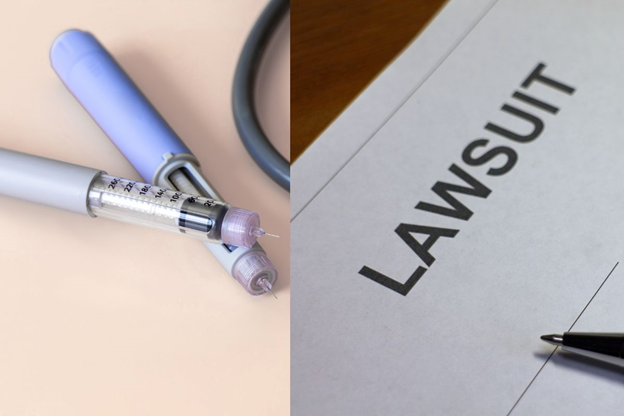In medicine, few drugs have sparked as much conversation as Ozempic. Originally hailed as a breakthrough in the treatment of type 2 diabetes, this medication has found itself at the heart of a growing controversy.
Recent reports and lawsuits have raised serious questions about its safety and side effects, highlighting the current legal battles. For those navigating these complex waters, it's crucial to reach out to skilled lawyers who understand the nuances of pharmaceutical litigation.
This article aims to shed light on the latest developments in the Ozempic lawsuit, offering insights into the ongoing legal challenges and their implications for patients and the healthcare industry.
Background of Ozempic
Ozempic, a name that has become increasingly familiar in the healthcare market, is not just any medication. It's a prescription drug primarily used to manage type 2 diabetes. Known scientifically as Semaglutide, Ozempic works by improving blood sugar levels and is often praised for its weight loss benefits.
Since its approval by the FDA in 2017, Ozempic has rapidly gained popularity, becoming a go-to option for many healthcare providers and patients. Its impact on the market has been significant, marking a notable advancement in diabetes treatment. However, with this popularity comes scrutiny, leading to the current legal challenges.
The Emergence of Legal Issues
As the use of Ozempic increased, so did reports of its side effects and adverse reactions. Initially emerging as individual cases, these reports soon painted a concerning picture. Patients spoke of unexpected complications, ranging from minor discomforts to severe health issues, sparking a wave of concern.
This shift from isolated incidents to a collective outcry laid the groundwork for legal action. The following lawsuits brought serious allegations, primarily focusing on the lack of adequate warnings about potential risks associated with Ozempic.
Plaintiffs argue that they were not sufficiently informed about the possible severe side effects, a claim that has put the manufacturers under intense legal and public scrutiny.
Key Developments in the Lawsuit
The legal saga surrounding Ozempic unfolded shortly after the first wave of complaints. Key milestones in the timeline include filing the initial lawsuit in early 2021, followed by several more in the subsequent months.
The major parties in this legal battle are the plaintiffs – a growing number of patients who experienced adverse effects – and the defendant, Novo Nordisk, the pharmaceutical company behind Ozempic.
The plaintiffs' legal arguments hinge on allegations of negligence and failure to warn about the drug's risks, while Novo Nordisk defends its practices, emphasizing adherence to regulatory standards and the benefits of Ozempic. These contrasting positions have set the stage for a contentious legal showdown.
Recent Updates in the Case
Significant developments have been made in the latest chapter of the Ozempic lawsuit. The most recent hearings, held in late 2023, saw robust debates over the scientific evidence presented by both sides.
A notable shift in the legal strategy of Novo Nordisk was observed, with a stronger emphasis on detailed clinical data to support their defense. On the plaintiffs' side, cases have been consolidated, aiming for a more unified and impactful legal approach.
While no settlements or resolutions have been reached yet, the growing intensity of these proceedings suggests that both parties are preparing for critical decisions that could shape the outcome of this high-stakes legal battle.
Impact on Patients and the Pharmaceutical Industry
The ripples of the Ozempic lawsuit have significantly impacted patients' trust in the drug. Many are now cautiously approaching it, weighing its benefits against the alleged risks. This shift in perception is echoed in the medical community, where healthcare providers are increasingly vigilant about prescribing Ozempic, often opting for more thorough patient consultations.
Beyond Ozempic, the lawsuit has broader implications for the pharmaceutical industry. It underscores the importance of transparency and rigorous safety protocols in drug development and marketing. This case reminds pharmaceutical companies about the critical balance between innovation and patient safety, potentially influencing future practices and regulatory policies.
Expert Opinions and Analysis
Legal experts analyzing the Ozempic case suggest varied potential outcomes, ranging from substantial settlements to the possibility of case dismissal, depending on the strength of the evidence presented.
Medical experts, meanwhile, remain divided on Ozempic. Some uphold its efficacy and safety profile per clinical trials, while others caution about potential risks, advocating for more comprehensive patient education. Comparatively, this lawsuit echoes past pharmaceutical litigations where patient safety and corporate responsibility were central themes.
Experts note that, like previous cases, the Ozempic lawsuit could lead to stricter regulatory measures and heightened public awareness about drug safety, setting a precedent for future pharmaceutical practices.
Final Thoughts
The Ozempic lawsuit stands as a pivotal moment in the realm of patient safety and pharmaceutical regulation. It highlights the delicate balance between drug innovation and consumer protection.
As the legal proceedings unfold, we can expect this case to potentially reshape industry standards and reinforce the importance of informed patient consent. The outcome of this lawsuit, whether a settlement or a court ruling, is poised to leave a lasting impression on how medications are developed, marketed, and perceived in the future.

